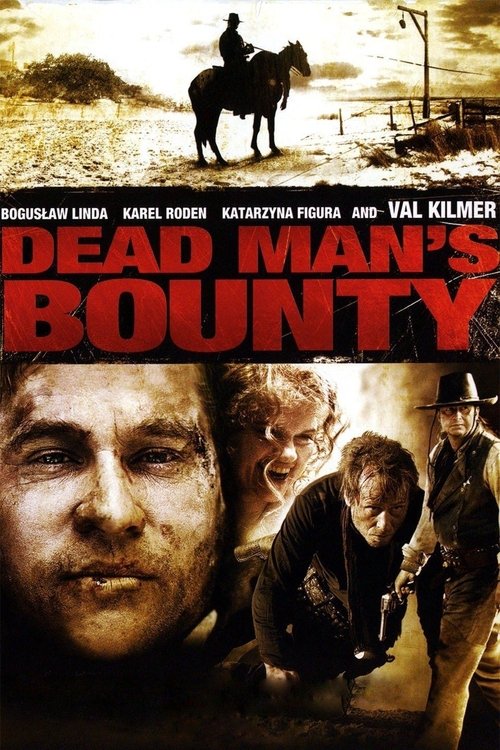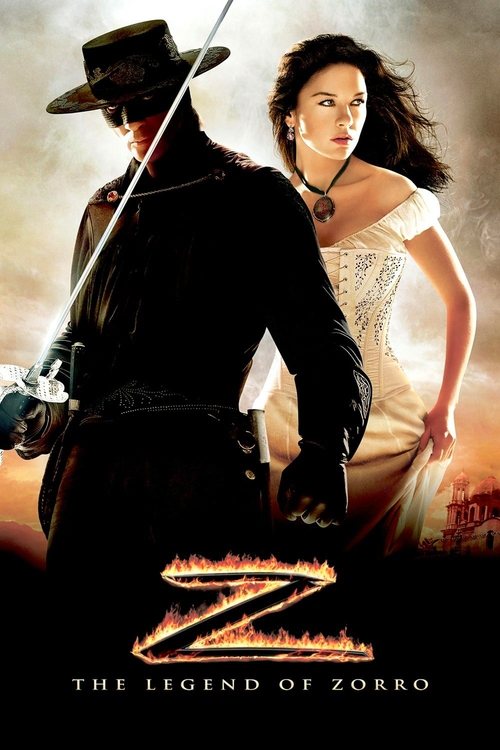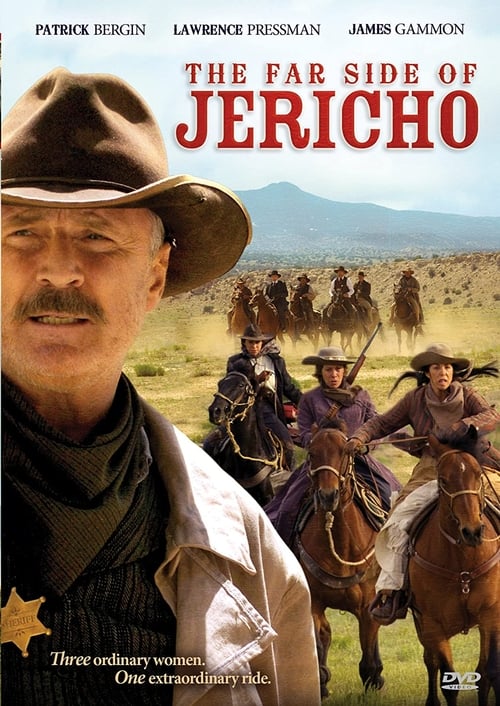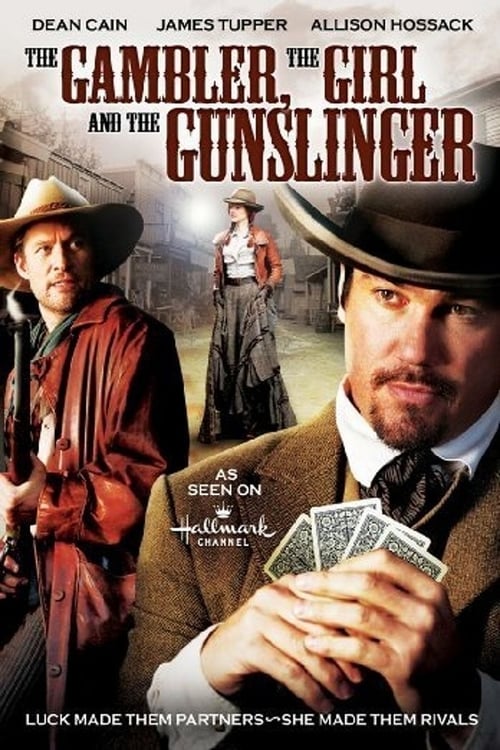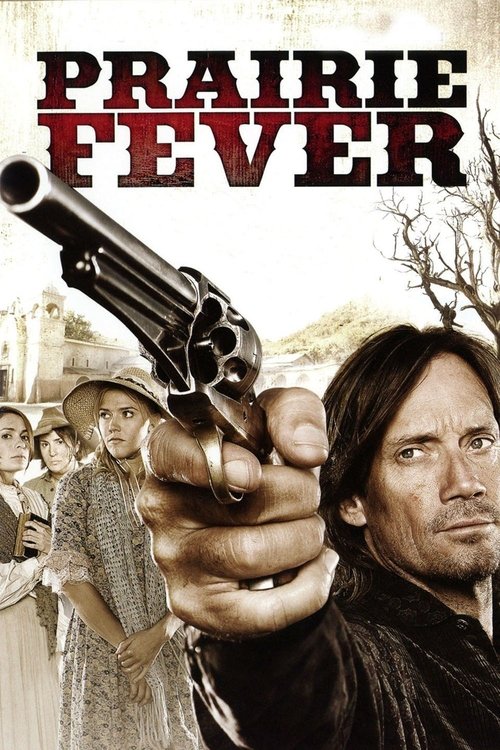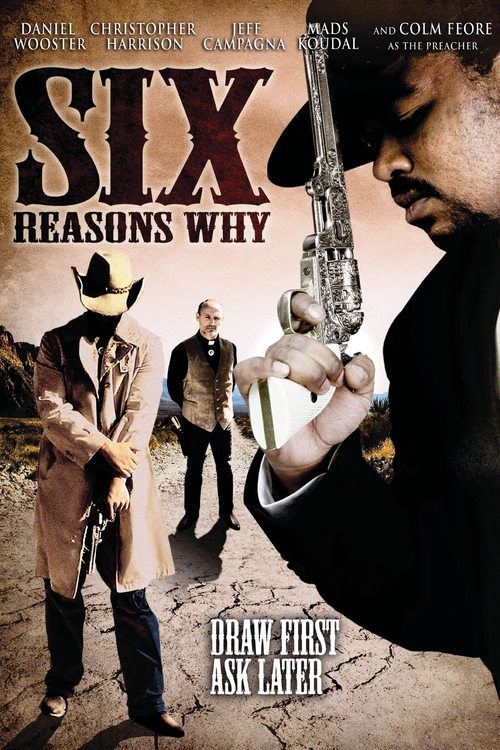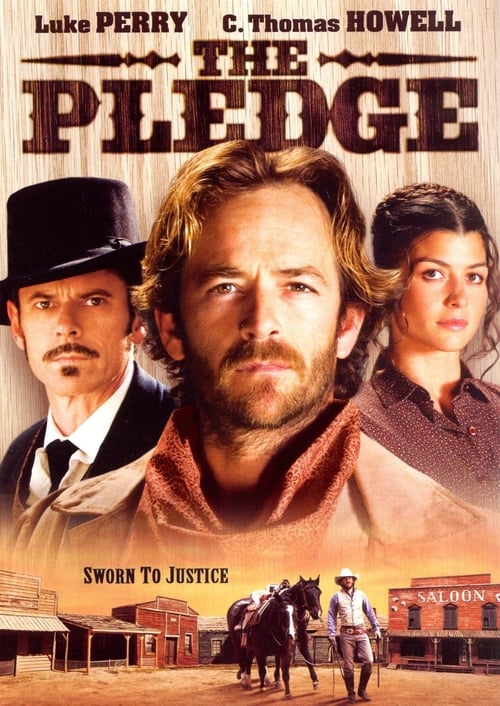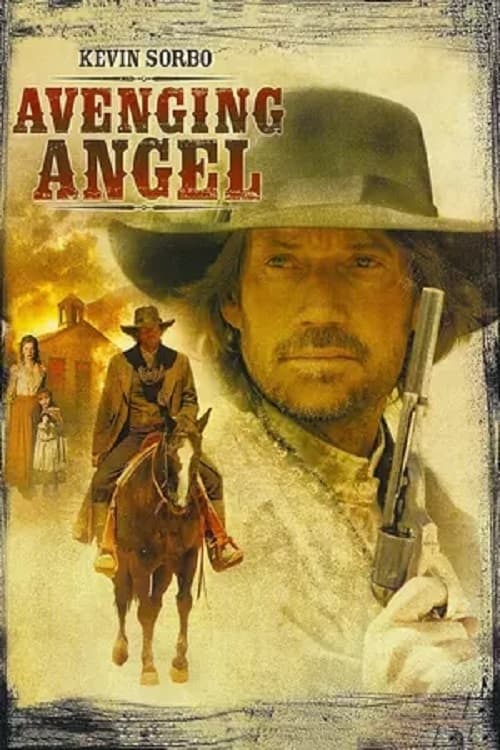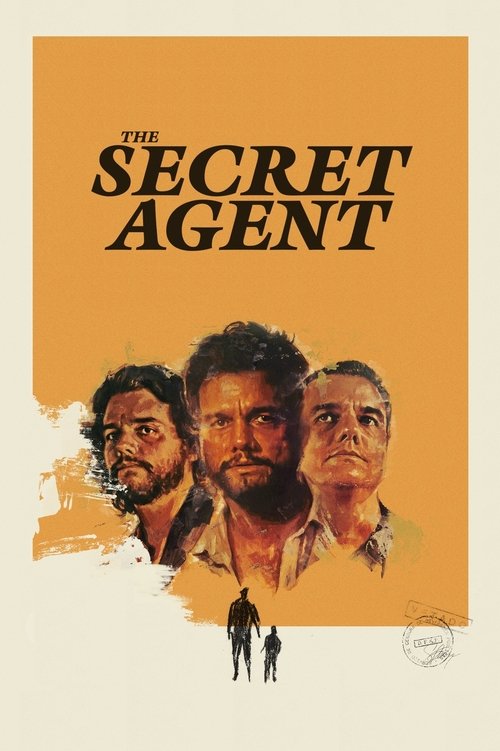
Ask Your Own Question
What is the plot?
The film opens in the barren, sun-bleached expanse of a desert, the air heavy with the stench of death and decay. Flies buzz incessantly around a lifeless body sprawled on the cracked earth. This corpse belongs to a notorious outlaw known only as the Wanted Man, played by Val Kilmer, whose face is pale and still beneath the unforgiving sun. The Stranger, a gaunt and weathered bounty hunter portrayed by Karel Roden, arrives at this grim scene. His eyes narrow as he recognizes the man from a tattered wanted poster promising a $500 reward. Without hesitation, The Stranger hoists the dead man onto his horse, the weight of the corpse a grim burden, and sets off toward the nearest settlement, a desolate, dilapidated Western town that seems forgotten by time.
The town is a bleak and chaotic place, its streets dusty and empty save for a few scattered, sullen townsfolk who eye The Stranger with suspicion. The saloon, a grimy, smoke-filled den of vice, is the heart of this forsaken outpost. Here, the Barmaid, a full-figured, world-weary woman played by Katarzyna Figura, tends bar with a mixture of cynicism and bitterness. Her eyes carry the scars of past betrayals, and her history with the town's Sheriff, Bogusław Linda, is fraught with pain. The Sheriff is a perpetually drunk, stumbling figure whose authority is a sham; his office is more a place for extortion than law enforcement. He supplements his meager income by allowing patrons to punch him in the face for money, a bizarre and humiliating ritual that epitomizes the town's moral decay.
The Stranger enters the saloon, dragging the corpse of the Wanted Man behind him. The room falls into a tense hush, broken only by the raucous laughter and jeers of the drunken patrons. The Sheriff eyes the corpse with greedy calculation. "Five hundred dollars," The Stranger mutters, holding up the wanted poster. The Sheriff smirks, "That's a pretty penny, stranger. But here, money changes hands in cards, not promises." A heated dispute ignites over the bounty, and the corpse becomes a macabre stake in a high-stakes card game. The saloon's smoky air thickens with tension as The Stranger wagers the body, desperate to claim his reward.
Amidst the swirling smoke and slurred threats, a scuffle erupts. The Stranger's rifle discharges accidentally, the sharp crack echoing through the saloon. A townsman collapses, clutching a bleeding wound--an unintended casualty in the chaos. The room erupts into pandemonium. The Stranger, bleeding from a head wound sustained in the fray, realizes the precariousness of his position. The Sheriff, seizing the moment, declares the corpse his prize, and a posse of drunken townsfolk forms to pursue the Stranger, who flees into the barren streets.
The chase is a disorganized frenzy, the posse's shouts and gunfire echoing off the wooden facades. The Stranger moves with grim determination, his every step marked by pain and desperation. The Sheriff, though drunk and clumsy, leads the pursuit with a doggedness born of greed and wounded pride. Yet the wilderness swallows the Stranger, and the posse, battered and disoriented, limps back to the town empty-handed.
Back in the saloon, the Barmaid's story unfolds through terse, bitter dialogue. She reveals to The Stranger her tortured past with the Sheriff: before he left to fight in the Civil War for the South, he fathered a child with her. She had written him countless letters, all unanswered, and ultimately chose to abort the child, a decision that haunts her and fuels her contempt for the Sheriff. "He was never mine," she spits bitterly, "just a ghost who left me to rot." The Sheriff, when present, drinks heavily and wallows in his own guilt and incompetence, a man broken by his own failures.
The Stranger and the Barmaid share a brief, fragile connection in her cramped, dimly lit room above the saloon. Their silence speaks volumes--two lost souls in a town where hope has long since died. The Stranger's motives remain clear: the bounty on the dead man's body is his only goal. Yet the town's chaos and his own missteps continually thwart him.
As days pass, the corpse of the Wanted Man becomes a symbol of futility and greed. It is gambled away, fought over, and ultimately forgotten. The townsfolk's violence and drunkenness escalate, but no further deaths occur on screen beyond the accidental shooting of the townsman. The Barmaid endures repeated physical abuse from various men, her suffering a stark emblem of the town's brutality and misogyny.
The climax arrives with a final, chaotic confrontation. After losing the corpse in a card game, The Stranger's battered figure staggers into the wilderness, bleeding from his head wound. The Sheriff and his posse, drunk and disorderly, give chase but fail to capture him. Their pursuit is futile, a disorganized mess that ends with their return to the town, empty-handed and no wiser.
In the film's closing moments, the camera lingers on the town's grim routine. The Barmaid remains trapped in her misery, the Sheriff still a drunken, corrupt figure, and the townsfolk resume their violent, drunken games. The corpse of the Wanted Man lies abandoned, a forgotten prize that underscores the pointlessness of their pursuits. The Stranger's fate is left ambiguous; he disappears into the wilderness, a bleeding, solitary figure fading into the dust.
The film ends without resolution or redemption, a bleak portrait of a world where justice is absent, and survival is the only certainty. The barren desert, the ruined town, and the broken people within it form a tableau of decay and despair, leaving the audience with a haunting vision of human folly and the futility of greed.
What is the ending?
In the ending of "Dead Man's Bounty," the main characters confront their fates as the story reaches its climax. The protagonist, a bounty hunter named Sam, faces off against the antagonist, a notorious outlaw named Black Jack. The film concludes with a tense showdown, leading to a resolution that leaves some characters dead and others changed forever.
As the final act unfolds, Sam, driven by a mix of vengeance and duty, tracks down Black Jack to a desolate hideout. The atmosphere is thick with tension as the two men prepare for their inevitable confrontation. Sam's internal struggle is palpable; he grapples with the weight of his past decisions and the lives lost in his pursuit of justice.
In a dramatic standoff, Sam and Black Jack exchange heated words, revealing their conflicting motivations. Black Jack, embodying chaos and lawlessness, taunts Sam, who represents order and retribution. The showdown escalates into a violent clash, with gunfire echoing through the barren landscape.
As the dust settles, Sam emerges victorious but at a great cost. He is left standing over Black Jack's lifeless body, a mix of relief and sorrow washing over him. The victory feels hollow, as he realizes that the cycle of violence has not truly ended.
Meanwhile, other characters face their own fates. Sam's partner, who had been a source of support throughout the film, is gravely injured during the confrontation. Their bond is tested as Sam must choose between staying to help his friend or continuing his pursuit of justice. Ultimately, he decides to stay, showcasing the theme of loyalty amidst chaos.
The film concludes with Sam walking away from the scene, burdened by the weight of his choices. He reflects on the cost of his quest for vengeance and the lives affected by his actions. The final shot lingers on the desolate landscape, symbolizing the emptiness that often accompanies a life of violence.
In summary, the ending of "Dead Man's Bounty" encapsulates the struggles of its characters, highlighting themes of vengeance, loyalty, and the consequences of a life lived on the edge of morality. Each character's fate serves as a reminder of the complexities of justice and the personal toll it takes.
Is there a post-credit scene?
In the movie "Dead Man's Bounty," there is no post-credit scene. The film concludes without any additional scenes or content after the credits roll. The story wraps up with the resolution of the main plot, focusing on the characters' fates and the consequences of their actions throughout the film. The absence of a post-credit scene allows the audience to reflect on the narrative and the themes of justice and redemption that permeate the story.
Who is the main protagonist in Dead Man's Bounty and what drives their actions throughout the film?
The main protagonist in Dead Man's Bounty is a bounty hunter named Sam. He is driven by a personal vendetta against a notorious outlaw who wronged him in the past. Sam's quest for revenge is fueled by a deep sense of betrayal and a desire for justice, which leads him to confront not only the outlaw but also his own moral compass.
What is the significance of the bounty that Sam is pursuing?
The bounty that Sam is pursuing represents not only a monetary reward but also a chance for redemption. It symbolizes his struggle to reclaim his honor after a series of personal losses and failures. The bounty serves as a catalyst for Sam's journey, pushing him to confront his past and the choices he has made.
How does the relationship between Sam and the outlaw evolve throughout the film?
The relationship between Sam and the outlaw is complex and evolves from one of pure animosity to a deeper understanding of their shared struggles. As Sam tracks the outlaw, he learns more about the outlaw's motivations and the circumstances that led to their conflict. This evolution adds layers to their confrontation, revealing that both characters are shaped by their pasts.
What role do the supporting characters play in Sam's journey?
The supporting characters in Dead Man's Bounty serve as both allies and obstacles for Sam. They reflect different aspects of his personality and choices. Some characters offer guidance and support, while others challenge his beliefs and force him to confront uncomfortable truths about himself. Their interactions help to highlight Sam's internal struggles and growth throughout the film.
What are the key turning points in the plot that affect Sam's quest for the bounty?
Key turning points in the plot include Sam's initial discovery of the outlaw's whereabouts, a betrayal by a trusted ally that forces him to reassess his mission, and a climactic confrontation that tests his resolve. Each of these moments pushes Sam to confront not only the physical challenges of his quest but also the emotional and ethical dilemmas that arise from his pursuit of vengeance.
Is this family friendly?
"Dead Man's Bounty," produced in 2006, is not considered family-friendly due to its themes and content. The film contains several potentially objectionable or upsetting elements, including:
- Violence: There are scenes depicting gunfights and physical confrontations that may be intense and graphic.
- Death: The film explores themes of mortality and loss, with characters facing life-and-death situations.
- Mature Themes: The narrative includes elements of betrayal, revenge, and moral ambiguity, which may be difficult for younger audiences to understand.
- Language: There may be instances of strong language that could be inappropriate for children.
- Emotional Turmoil: Characters experience significant emotional distress, which could be upsetting for sensitive viewers.
These aspects contribute to a tone that may not be suitable for children or those who are sensitive to such themes.

